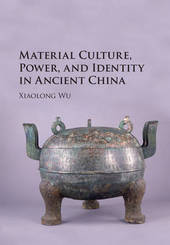
|
Material Culture, Power, and Identity in Ancient China
Hardback
Main Details
Description
In this book, Xiaolong Wu offers a comprehensive and in-depth study of the Zhongshan state during China's Warring States Period (476-221 BCE). Analyzing artefacts, inscriptions, and grandiose funerary structures within a broad archaeological context, he illuminates the connections between power and identity, and the role of material culture in asserting and communicating both. The author brings an interdisciplinary approach to this study. He combines and cross-examines all available categories of evidence, including archaeological, textual, art historical, and epigraphical, enabling innovative interpretations and conclusions that challenge conventional views regarding Zhongshan and ethnicity in ancient China. Wu reveals the complex relationship between material culture, cultural identity, and statecraft intended by the royal patrons. He demonstrates that the Zhongshan king Cuo constructed a hybrid cultural identity, consolidated his power, and aimed to maintain political order at court after his death through the buildings, sculpture, and inscriptions that he commissioned.
Author Biography
Xiaolong Wu is Associate Professor of Art History at Hanover College, Indiana. He received his BA in Chinese archaeology from Beijing University and his PhD in Art History from the University of Pittsburgh. His research interest focuses on the material culture of late Bronze Age China and its interactions with the Eurasian Steppe, and issues related to ethnicity, hybridity, agency, and political power.
|